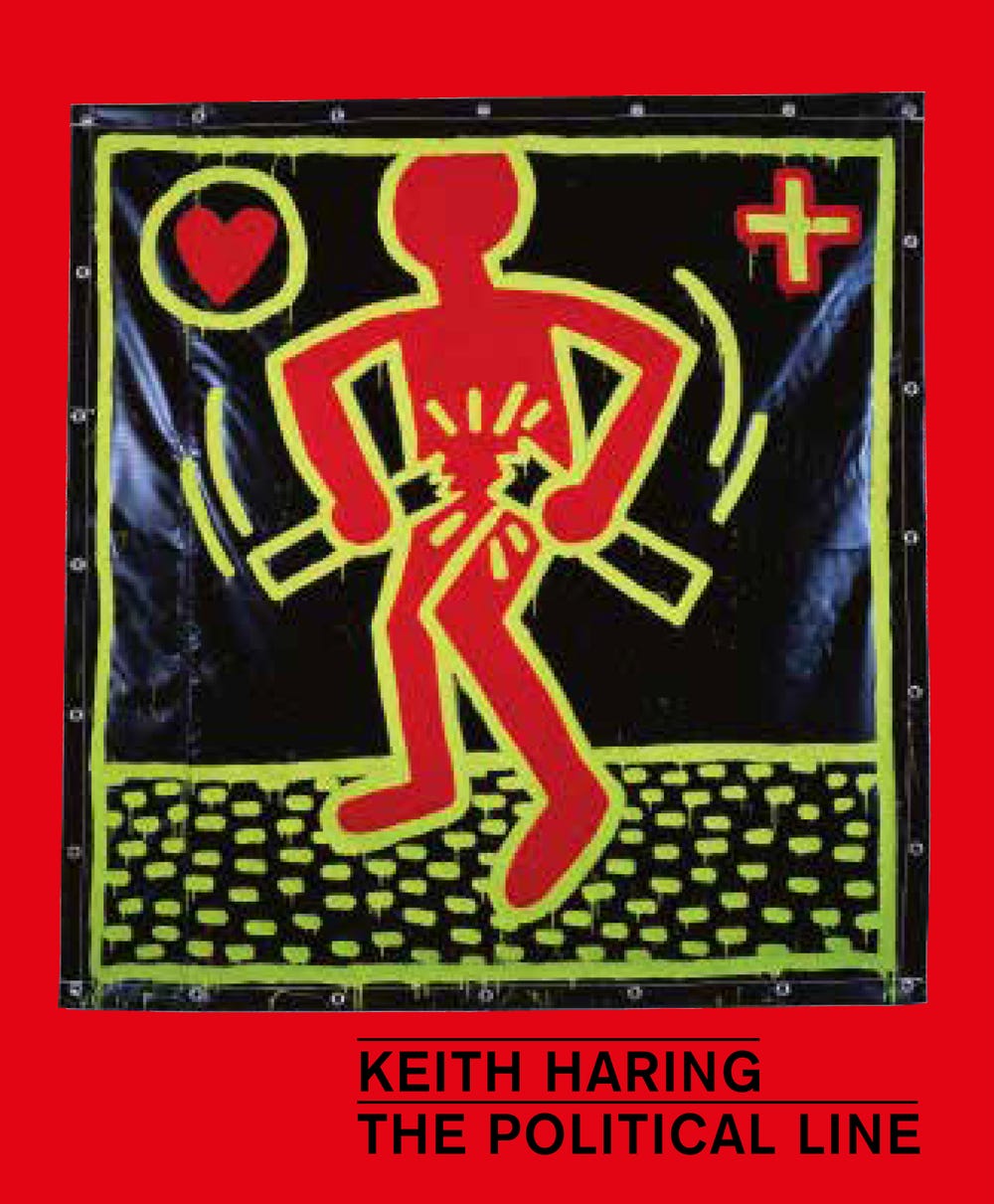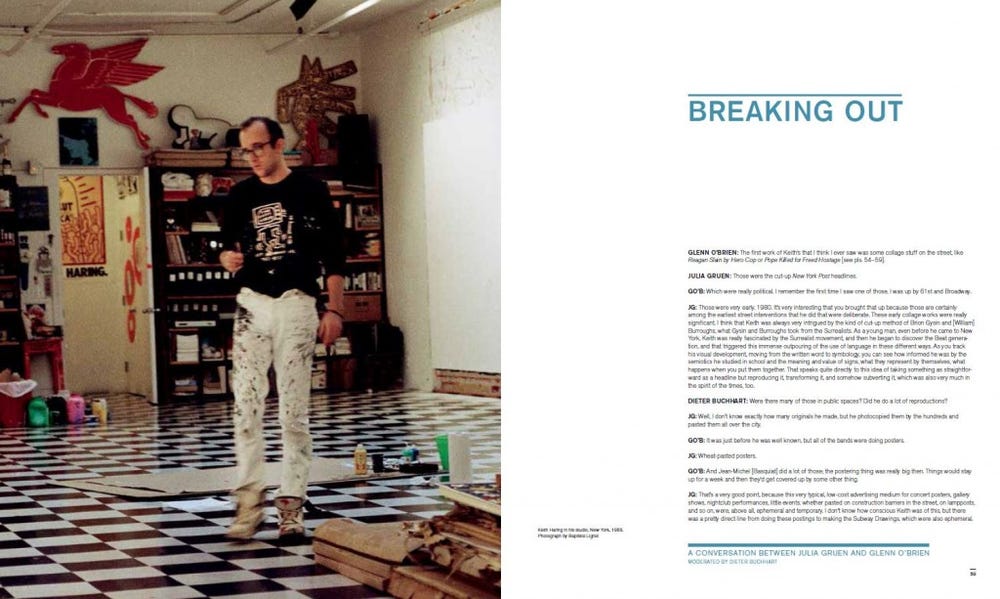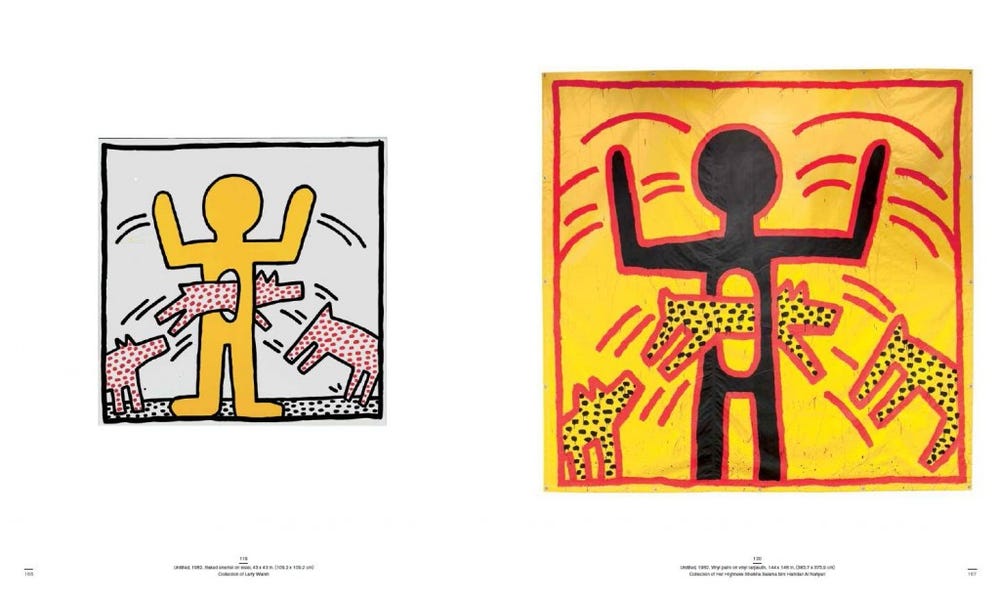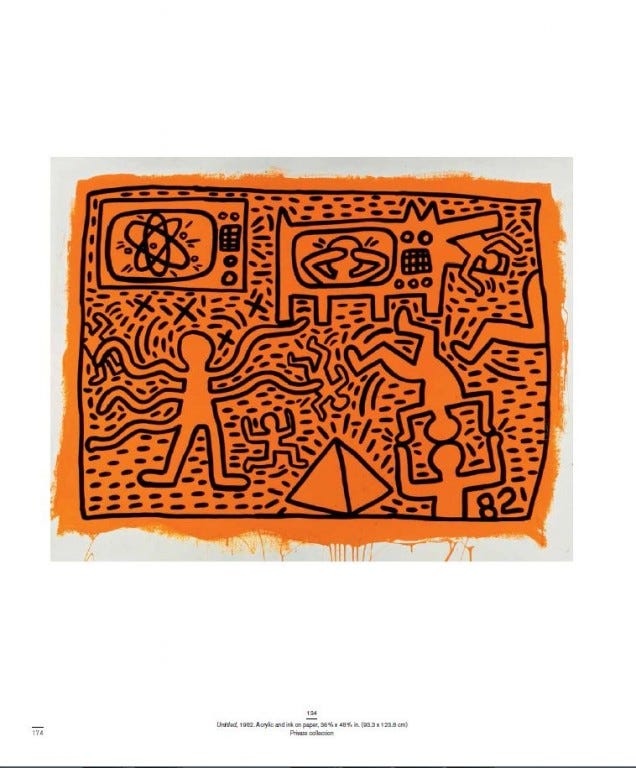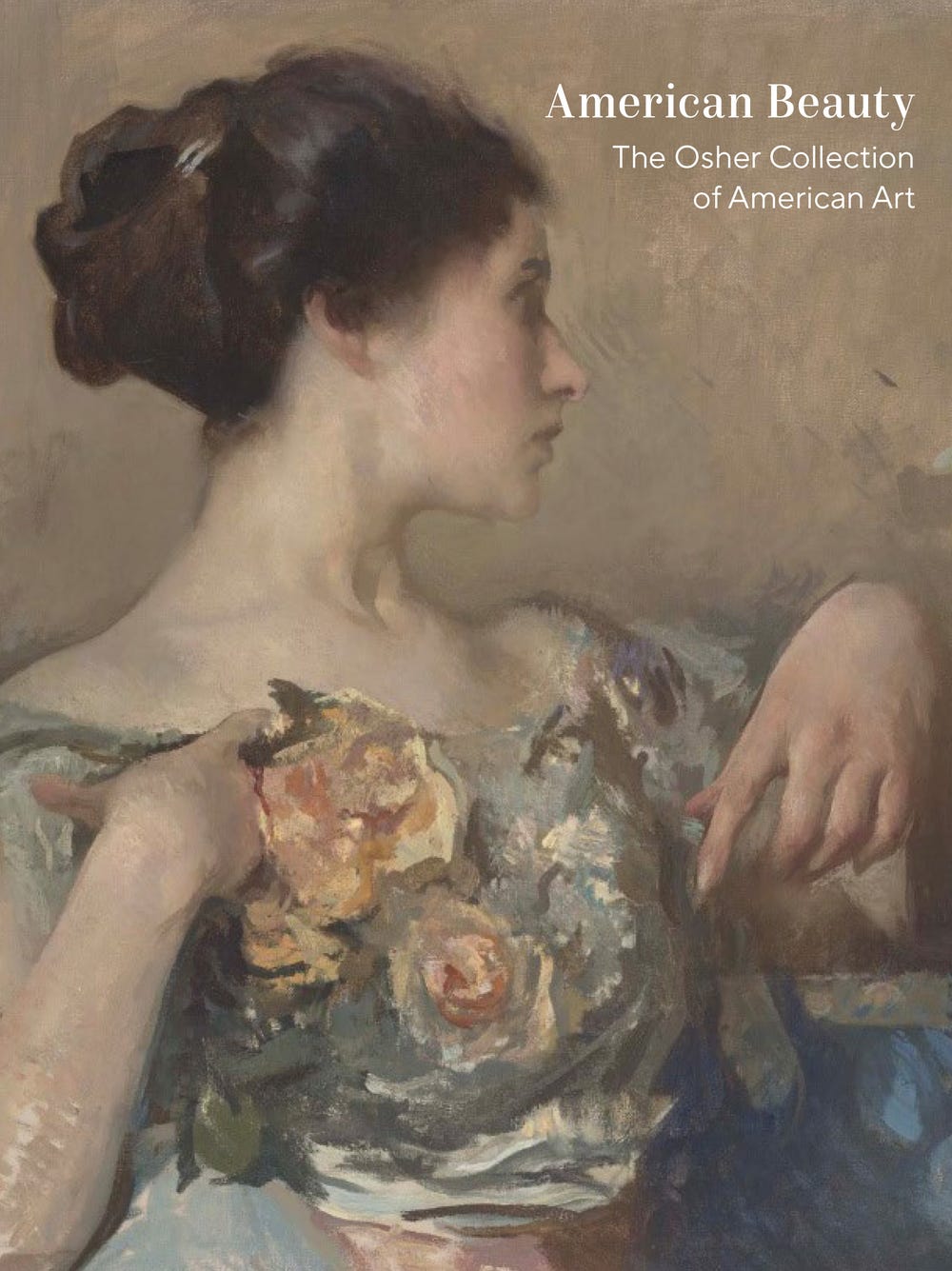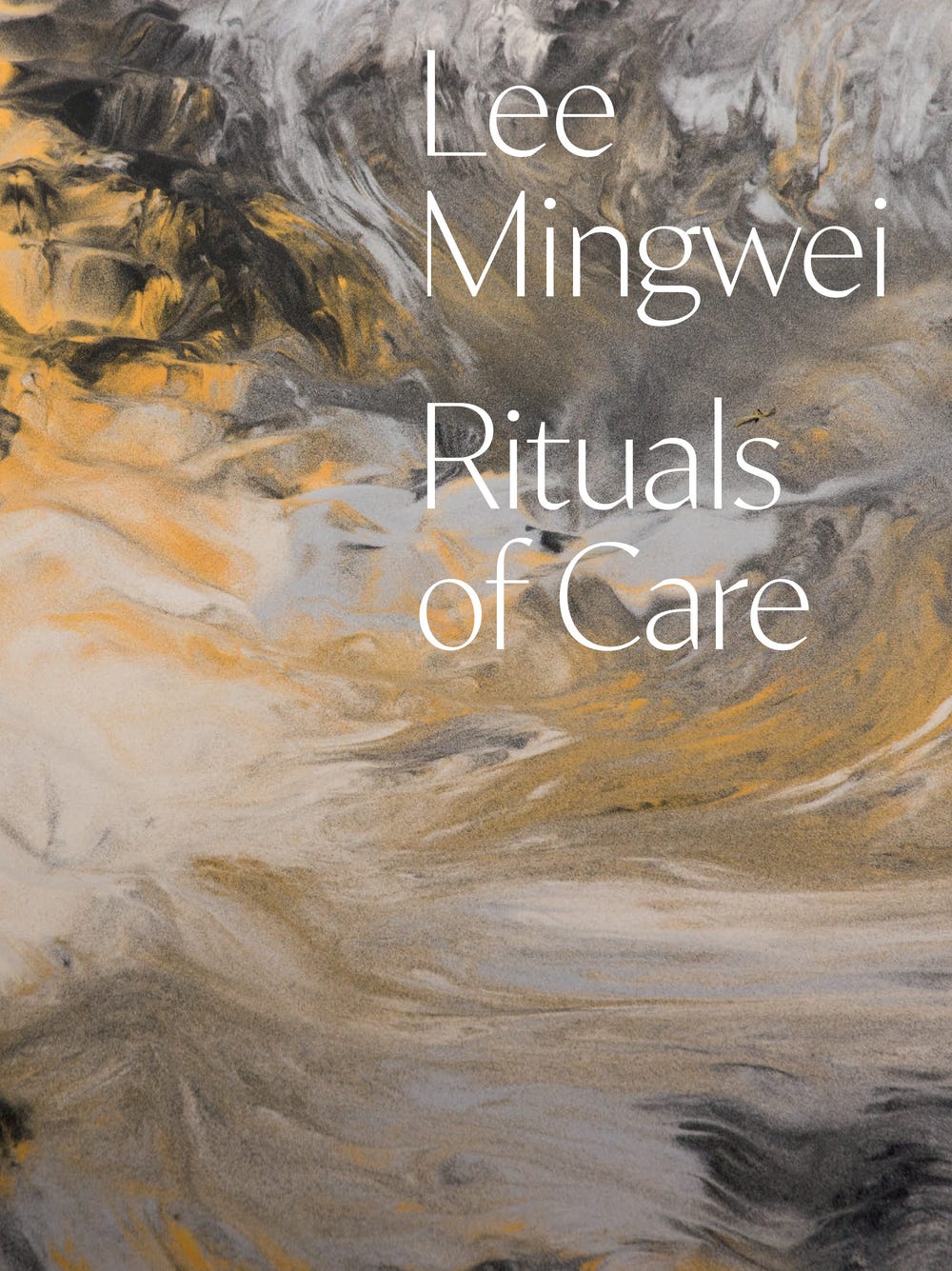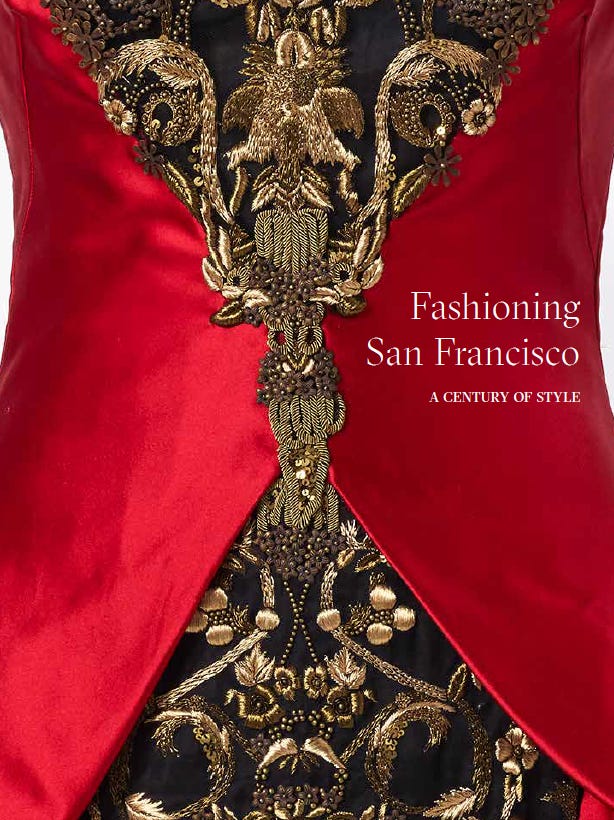Keith Haring: The Political Line
By Dieter Buchhart, Julian Cox, Julia Gruen, Carlo McCormick, Julian Myers-Szupinska, Glenn O’Brien, Tony Shafrazi, et al.
Keith Haring (American, 1958–1990) is known worldwide through his graffiti-inspired drawings, paintings, sculptures, murals, and even merchandise. While his visual iconography has become part of the popular culture, his profound commitment to social justice has been less recognized. Keith Haring: The Political Line offers fresh examinations of Haring’s work through a political lens, lending deeper insights into one of the most prodigious artists of the late twentieth century.
Haring began his career in the early 1980s by making collages and cartoonlike drawings, many of which he posted in public spaces. His vivid vocabulary of handdrawn symbols, such as zapping spaceships and barking dogs, raised provocative contemporary issues and spoke to both his generation and those that followed. In his work, Haring unapologetically denounced racism, capitalism, homophobia, dictatorship, atomic war, environmental degradation, and the excesses of technology and mass media. He also cared greatly about children’s well being, the fight against drug addiction, and bringing an end to the AIDS epidemic.
Keith Haring: The Political Line, published on the occasion of a major exhibition at the de Young in San Francisco and produced in collaboration with the Keith Haring Foundation, explores the artist’s engagement with politics, the urban landscape, the art world, and pop culture. Featuring reproductions of more than two hundred works of art, an opening photo gallery by Haring’s friend and photographer Tseng Kwong Chi, four essays expanding upon the political aspects of Haring’s art, and conversations with those close to the artist, this catalogue provides intimate and broad views into Keith Haring’s life, work, and political convictions.
Authors
Dieter Buchhart is a curator and theorist of twentieth century and contemporary art. He was the director of the Kunsthalle Krems, outside Vienna, from 2007 to 2009. Since 1999, he has served as an art critic for Kunstforum International and other art magazines.
Julian Cox is the Fine Arts Museums of San Francisco’s founding curator of photography and chief administrative curator. His recent publications include The Errand of the Eye: Photographs by Rose Mandel (2013) and Anthony Friedkin: The Gay Essay (2014).
Julia Gruen is the executive director of the Keith Haring Foundation, a post she has held since the artist appointed her in 1989. She also worked as Haring’s studio manager from 1984 to 1990.
Carlo McCormick is a culture critic and curator living in New York City. He is the author of numerous books, monographs, and catalogues on contemporary art and artists.
Julian Myers-Szupinska is an art historian and writer on contemporary art. His work has appeared in Afterall, Artforum, Documents, Fillip, Frieze, October, Tate Papers, and other publications.
Glenn O’Brien is an American writer whose subjects include art, music, and fashion. O’Brien was the editor for Andy Warhol’s Interview magazine in the early 1970s and he wrote and produced the film Downtown 81 featuring Jean-Michel Basquiat.
Tony Shafrazi owns the Tony Shafrazi Gallery in New York, which focuses primarily on postwar and contemporary art. He was Keith Haring’s art dealer and friend during the artist’s lifetime.
Robert Farris Thompson is the Colonel John Trumbull Professor of History of Art and African and African American Art at Yale University. He also has presided over exhibitions of African art at the National Gallery of Art in Washington, DC.
Giorgio Verzotti is a curator and writer. He teaches at the Nuova Accademia di Belle Arti in Milan, and, in 2012, he became the artistic director of the Arte Fiera in Bologna.
